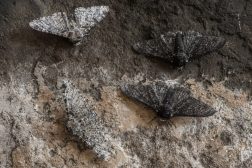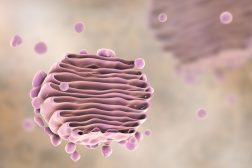Definition
noun
A structure inside the cell from where microtubules organize following depolymerization to turn into tubular structures arranged in distinct pattern and number
Supplement
The microtubule-organizing center (MTOC) is a structure where microtubules organize following depolymerization. This pericentriolar structure plays two primary functions: to determine the organization of eukaryotic flagella and cilia, and to organize the spindle apparatus necessary in the pulling of chromosomes toward opposite sides during mitosis and meiosis.
In animals, the MTOCs serve two roles. MTOCs associated with cilia are referred to as basal bodies. Those associated with the formation of the spindle apparatus are called centrosomes. A basal body is a structure found at the base of eukaryotic cilia and flagella. It is comprised of a continuation of the nine outer sets of axonemal microtubules but with the addition of a c tubule to form a triplet (like the centriole). A centrosome is an organelle that migrates to opposite poles of the cell during mitosis, and is involved in the formation of mitotic spindle, assembly of microtubules, and regulation of cell cycle progression.
Abbreviation / Acronym: MTOC
Variant(s):
- microtubule organising centre (British)
See also:







